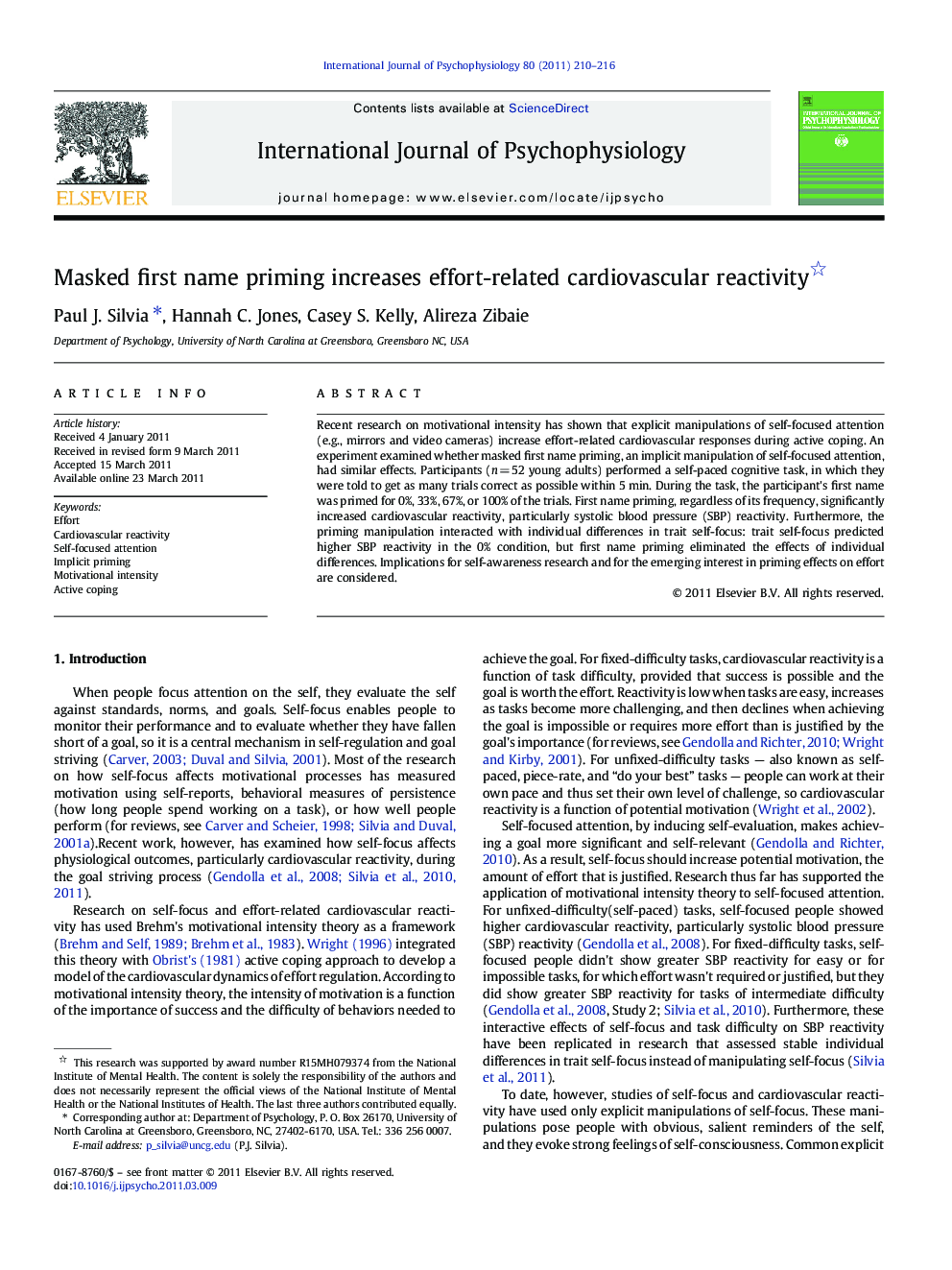| Article ID | Journal | Published Year | Pages | File Type |
|---|---|---|---|---|
| 931413 | International Journal of Psychophysiology | 2011 | 7 Pages |
Recent research on motivational intensity has shown that explicit manipulations of self-focused attention (e.g., mirrors and video cameras) increase effort-related cardiovascular responses during active coping. An experiment examined whether masked first name priming, an implicit manipulation of self-focused attention, had similar effects. Participants (n = 52 young adults) performed a self-paced cognitive task, in which they were told to get as many trials correct as possible within 5 min. During the task, the participant's first name was primed for 0%, 33%, 67%, or 100% of the trials. First name priming, regardless of its frequency, significantly increased cardiovascular reactivity, particularly systolic blood pressure (SBP) reactivity. Furthermore, the priming manipulation interacted with individual differences in trait self-focus: trait self-focus predicted higher SBP reactivity in the 0% condition, but first name priming eliminated the effects of individual differences. Implications for self-awareness research and for the emerging interest in priming effects on effort are considered.
Research Highlights► Rapidly flashing first names during a task increased SBP reactivity. ► Three levels of priming (33%, 67%, or 100%) increased SBP reactivity. ► Name priming interacted with individual differences in self-focus.
